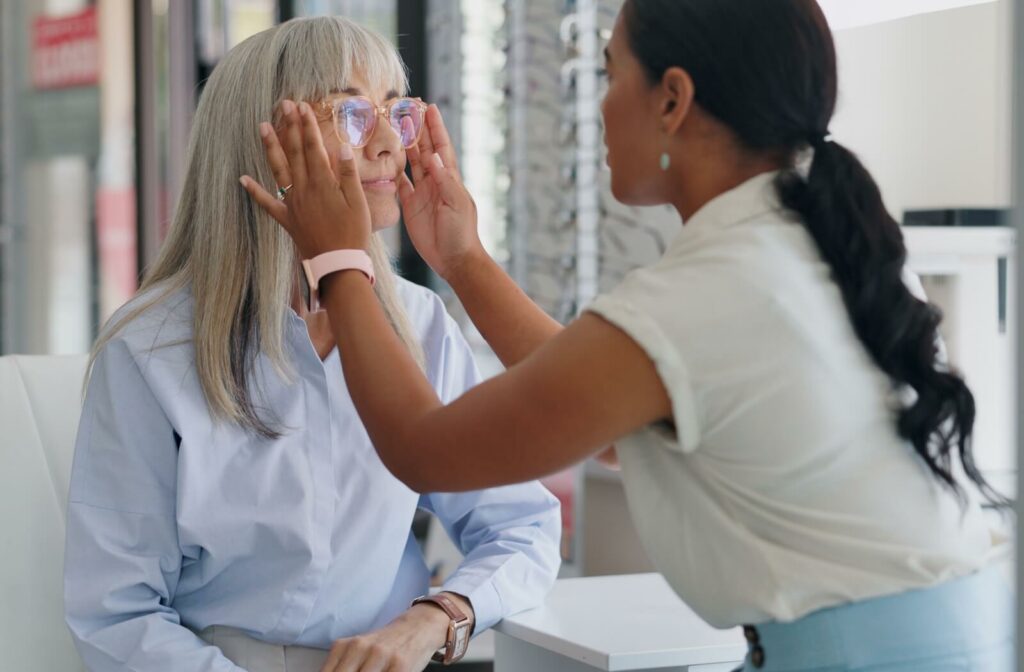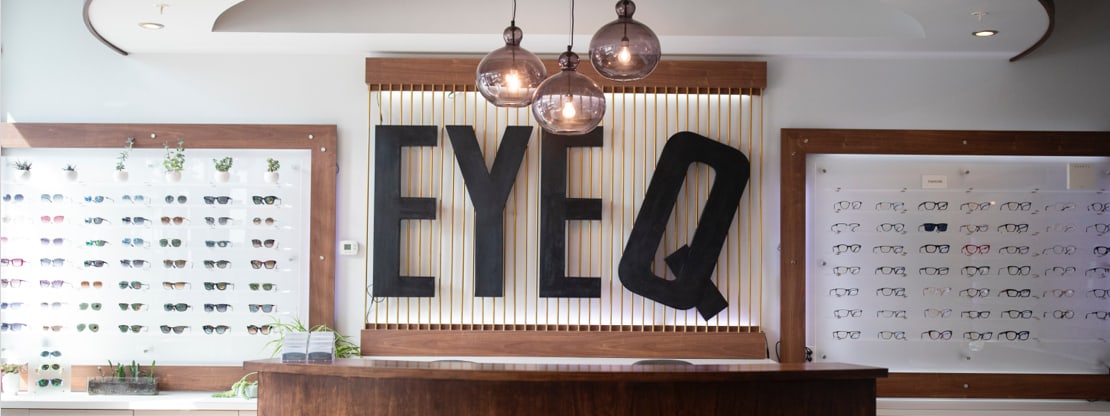If you wear prescription glasses, you know how crucial they are to keep your vision clear. But how often should you renew your prescription? A valid eyeglasses prescription should not be longer than 2 years.
However, this doesn’t mean you should wear your prescription lenses for that timeframe if you notice a change in your vision. Some eye conditions may require more frequent prescription changes, making regular eye exams crucial to monitor eye health and vision clarity.
What Is a Glasses Prescription?
An eyeglass or optical prescription is a written order from an eye care professional that specifies the parameters needed to correct your vision. It’s essential to understand the different components of your prescription to grasp why it needs periodic updates:
- OD and OS: Oculus dexter is for the right eye and oculus sinister is for the left eye.
- SPH, CYL, and Axis: Indicates the lens power needed to correct near vision.
- ADD refers to the additional magnifying power to achieve a near prescription.
A valid prescription generally contains the following:
- Optometrist’s information
- Patient’s name
- Refractive information
- Prescription issued date
- Prescription expiry date
- Authorizing signature
How Long Are Glasses Prescriptions Good For?
A glasses prescription is valid for no more than 2 years. However, this can vary. The recommended eye exam frequency according to the Alberta Association of Optometrists:
- Children 6 to 19: Annual eye exams
- Adults 20–64: Eye exams every 2 years
- Seniors 65 and over: Yearly eye exams
Factors That Affect Prescription Validity
Several factors can influence how long your prescription remains valid:
- Age: Younger individuals and children may require more frequent updates due to rapid vision changes, such as myopia.
- Eye health changes: Some eye diseases can affect your ocular health and vision, necessitating more frequent exams and prescription changes.
- Damage to your lens: While a scratched lens may not necessarily mean a prescription update, it requires replacing as it can affect your vision and lead to eye strain, headaches, and blurred vision.
Importance of Regular Eye Exams
Regular eye exams are essential for several reasons:
- Detecting changes in your vision and updating your prescription accordingly.
- Identifying early signs of eye diseases that could impact your vision.
- Make sure your glasses or contact lenses provide adequate vision correction.
Benefits of & Renewing Your Glasses Prescription
Keeping your prescription up to date offers numerous benefits:
- Optimal vision: An outdated prescription can affect vision clarity.
- Eye health: Regular exams help to detect and manage eye conditions early to prevent vision from worsening.
- Comfort: Proper glasses prescription and fit can reduce discomfort and improve overall visual comfort.
Renewing your glasses prescription involves booking a comprehensive eye exam with your eye doctor. If you have concerns or questions about your vision, jot them down to discuss during your exam. Bring your current glasses to your appointment.
During this exam, they will conduct several tests, such as visual acuity, eye pressure tests, and possibly dilation to examine the internal structures of your eyes. After the examination, your eye doctor will provide you with a new prescription if it needs updating.
Differences Between Glasses & Contact Lens Prescriptions
While glasses and contact lens prescriptions might seem similar, they aren’t interchangeable. Key differences include:
- Measurements: Contact lens prescriptions include a base curve and diameter for fitting the lens to your eye, which differs from eyeglass measurements.
- Material and brand: Contact lens prescriptions specify the lens material and brand suitable for your eyes.
- Expiration: Typically, contact lens prescriptions have a shorter validity period, often 1 year, due to the need for frequent lens replacements and eye health checks.
- Exam: In addition to a comprehensive eye exam, you’ll need a contact lens exam and fitting to obtain a contact lens prescription.
- Vertex distance: Since contact lenses sit directly on your eye, the actual power of the lens may differ from your glasses prescription due to the vertex distance (the distance between your eye and the glasses lens).
Signs You May Need a New Eyeglass Prescription

Some common signs of an incorrect or outdated eyeglass prescription include:
- Blurry vision
- Eye strain
- Headaches
- Difficulty focusing
If you experience any of these symptoms, schedule an eye exam and update your prescription if necessary. Wearing the wrong prescription can cause vision discomfort.
Updated Prescriptions for Optimal Vision
Keeping your glasses and contact lens prescriptions up to date is crucial for maintaining optimal vision and overall eye health. Regular eye exams allow your eye doctor to monitor changes in your vision and eye health, providing you with the most accurate and comfortable corrective lenses.
If it’s been a year since your last eye exam, now is the perfect time to schedule one. By staying on top of your eye health and making sure your prescriptions are current, you’ll enjoy clear, comfortable vision and catch any potential issues early. Book an appointment with Eye Q Optometry today.










